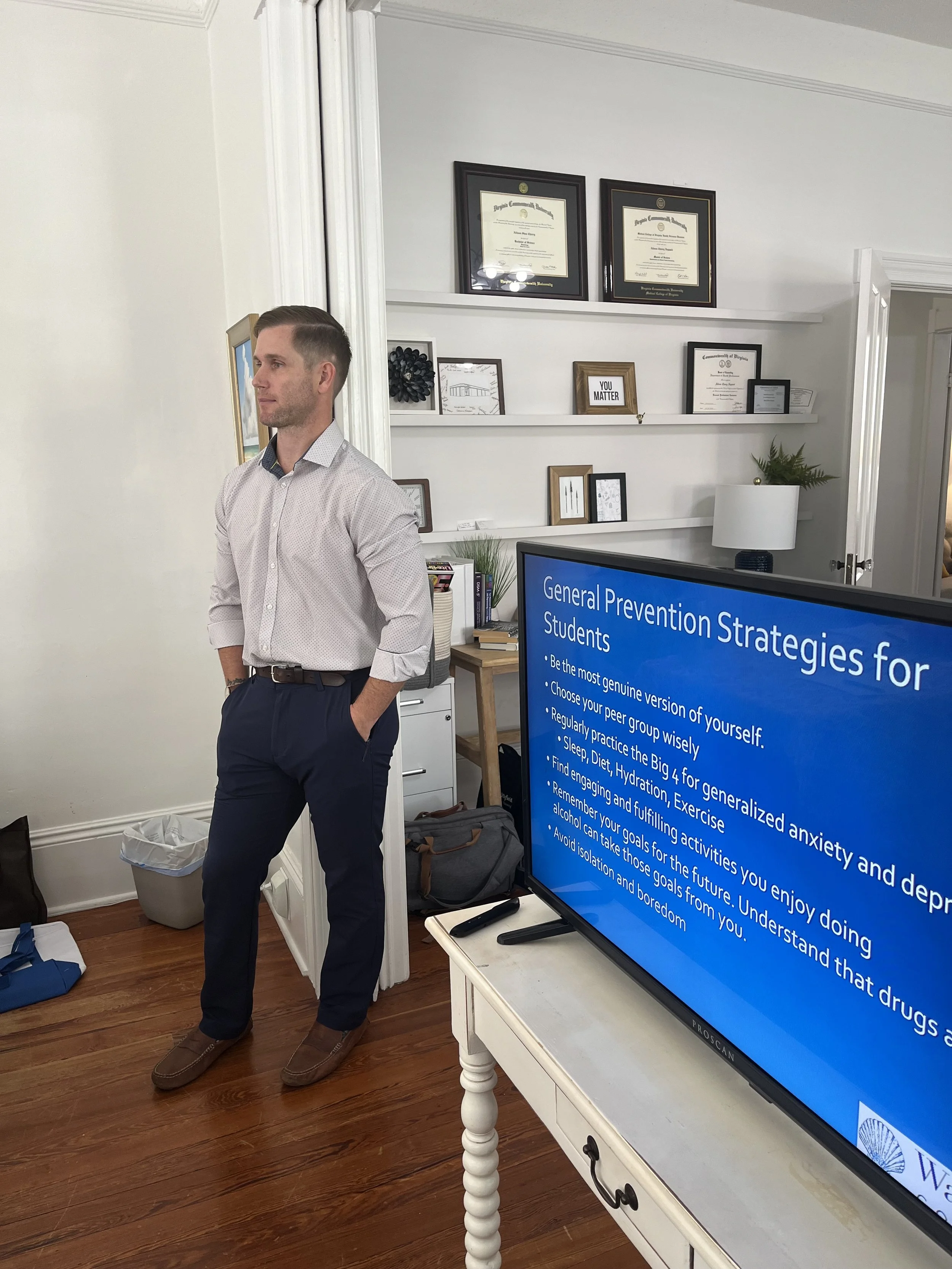How to Host a School Counselor Training at Your Practice (and Build Lasting Referral Relationships)
Every fall, our practice hosts an event that has become one of the most valuable traditions of the year: a school counselor training. One of our therapists takes the lead on training them on topics such as substance abuse, suicide prevention, self-harming behaviors, and one of our most recent– “Seeing Behind The Behavior.”
This tradition has not only educated the counselors in our district and provided them with helpful resources, but it has also naturally built lasting referral relationships that are priceless.
Why a School Counselor Training Is Essential
You may be wondering why something like this is even necessary. I’m aware that it may sound time-consuming and unimportant, but we must remember that counselors are on the front lines with students daily. Therefore, it’s essential that they are not only equipped with the necessary tools but also receive support from their community, aka us therapists, as they are navigating how to carry such a heavy load.
Training gives them the tools to handle both urgent and ongoing issues. Whether children are struggling with friendship challenges or facing deeper internal battles, school counselors are often the first responders—stepping in to support students while parents manage the demands of daily life.
Our children are dealing with a lot–and sometimes the challenges they face are dealt with while they are walking the hallways of their school. So, let's team up and make sure those hallways are filled with individuals who are dressed in the right armor to help them more effectively.
Choosing Topics That Matter
The topics you choose to teach on must be relevant and practical. Some examples from our past events are:
Substance abuse
Suicide prevention
Self-harming behaviors
Although these may seem “touchy” to talk about at first, they are unfortunately some of the heavy things our children deal with daily–and we can’t be afraid to fight back.
If you’re uncertain about how to know which topics are the most relevant, the best cure is to ask. As I said earlier, school counselors are on the front line. They see what kids are dealing with day in and day out. More likely than not, they’ll be able to provide you with the most plaguing issues that they have observed. Also, try to make it a priority to examine student needs within your community. There’s typically a pattern that can be seen or heard about if you’re listening closely enough.
Take a moment right now and think—what cries are echoing through the neighborhoods of your city right now?
Structuring the Event & The Power of Connection
Whenever my practice hosts these trainings, we like to create an environment that feels safe enough to learn and one that feels like home. Fall typically works well because it’s “back to school” season, and the fallen leaves give an extra oomph of comfy.
Hospitality plays are huge role in creating lasting relationships with those in your community. Try to provide a quick breakfast, like coffee and a bagel, and build up an atmosphere that feels warm, approachable, and familiar.
I would also suggest having one main therapist lead the presentation. This provides structure and relatability on a deeper level, especially when you allow for discussion and networking throughout the training. Give counselors a space to share their challenges and wins. This opens the door for learning on both sides. Allow the room to be a floor of conversation–not just hours of talking at them. Take moments to build relationships outside of crisis moments. These conversations create an open door for referrals down the road.
Perfection isn’t the goal—faithfulness is. Lean on the Holy Spirit to direct your conversations and strengthen these vital relationships.
Practical Checklist for Hosting Your Own Training
Determine Date, Time, and Location
Finalize the event date, time, and venue.
Select Speaker and Topic
Decide who will be speaking and what topic will be covered.
Create a Google Form for Registration
Set up a Google Form to collect RSVPs and gather attendee details.
Generate QR Code for Registration
Create a QR code linking to the Google Form for easy event sign-up.
Plan and Schedule Social Media Posts
Updated the Linktree with the registration link
Update the Instagram Links in the profile
Create three social media posts, including the QR code:
First post: 5 weeks before the event.
Second post: 2 weeks before the event.
Final post: 3 days before the event.
Email Campaign for School Counselors
Send emails to school counselors at the following intervals:
5 weeks before the event.
3 weeks before the event.
1 week before the event.
Reminder email to registered attendees the day before the event.
Add information to the Google My Business Profile
Create a graphic and copy (use from the previous steps) to promote the event on GMB
If working with a third party, send the information to them (Practice at Scale)\
8. Decide on Food and Beverages
About a week out, choose the breakfast items and coffee and arrange the order.
9. Send a reminder email to those who registered 2-3 days before the event.
10. Send a follow-up email after the event thanking them for attending and a feedback survey
11. Remove the Registration links for Instagram and LinkTree
Feel free to copy and paste this list for future reference.
Conclusion
Hosting a counselor training is more than a marketing tool—it’s community building. Counselors leave feeling equipped, seen, and supported. When you host these trainings, your practice builds meaningful partnerships that naturally lead to student referrals.
Try one this year and see the impact it makes. You don’t have to have all the answers; just give it a shot. You never know how this partnership could change–or even save lives in your area. God is with you, my friend.


